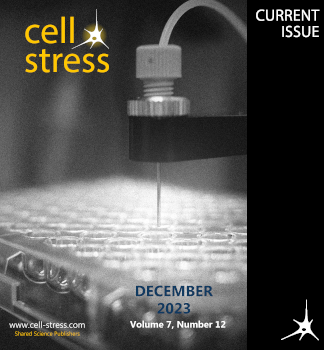The impact of endothelial cell death in the brain and its role after stroke: A systematic review
IF 4.1
Q2 CELL BIOLOGY
引用次数: 44
Abstract
The supply of oxygen and nutrients to the brain is vital for its function and requires a complex vascular network that, when disturbed, results in profound neurological dysfunction. As part of the pathology in stroke, endothelial cells die. As endothelial cell death affects the surrounding cellular environment and is a potential target for the treatment and prevention of neurological disorders, we have systematically reviewed important aspects of endothelial cell death with a particular focus on stroke. After screening 2876 publications published between January 1, 2010 and August 7, 2019, we identified 154 records to be included. We found that endothelial cell death occurs rapidly as well as later after the onset of stroke conditions. Among the different cell death mechanisms, apoptosis was the most widely investigated (92 records), followed by autophagy (20 records), while other, more recently defined mechanisms received less attention, such as lysosome-dependent cell death (2 records) and necroptosis (2 records). We also discuss the differential vulnerability of brain cells to injury after stroke and the role of endothelial cell death in the no-reflow phenomenon with a special focus on the microvasculature. Further investigation of the different cell death mechanisms using novel tools and biomarkers will greatly enhance our understanding of endothelial cell death. For this task, at least two markers/criteria are desirable to determine cell death subroutines according to the recommendations of the Nomenclature Committee on Cell Death.脑内皮细胞死亡的影响及其在脑卒中后的作用:一项系统综述
向大脑提供氧气和营养物质对其功能至关重要,需要一个复杂的血管网络,一旦受到干扰,就会导致严重的神经功能障碍。作为中风病理的一部分,内皮细胞死亡。由于内皮细胞死亡影响周围细胞环境,是治疗和预防神经系统疾病的潜在靶点,我们系统地回顾了内皮细胞死亡的重要方面,特别关注中风。在筛选了2010年1月1日至2019年8月7日期间发表的2876份出版物后,我们确定了154份记录。我们发现内皮细胞的死亡发生得很快,并且在中风发作后发生得更晚。在不同的细胞死亡机制中,细胞凋亡是研究最广泛的(92条记录),其次是自噬(20条记录),而其他最近定义的机制受到的关注较少,如溶酶体依赖性细胞死亡(2条记录)和坏死下垂(2条记录)。我们还讨论了脑卒中后脑细胞对损伤的不同脆弱性,以及内皮细胞死亡在无血流现象中的作用,特别关注微血管。使用新的工具和生物标志物进一步研究不同的细胞死亡机制将大大提高我们对内皮细胞死亡的理解。对于这项任务,根据细胞死亡命名委员会的建议,至少需要两个标记/标准来确定细胞死亡子程序。
本文章由计算机程序翻译,如有差异,请以英文原文为准。
求助全文
约1分钟内获得全文
求助全文
来源期刊

Cell Stress
Biochemistry, Genetics and Molecular Biology-Biochemistry, Genetics and Molecular Biology (miscellaneous)
CiteScore
13.50
自引率
0.00%
发文量
21
审稿时长
15 weeks
期刊介绍:
Cell Stress is an open-access, peer-reviewed journal that is dedicated to publishing highly relevant research in the field of cellular pathology. The journal focuses on advancing our understanding of the molecular, mechanistic, phenotypic, and other critical aspects that underpin cellular dysfunction and disease. It specifically aims to foster cell biology research that is applicable to a range of significant human diseases, including neurodegenerative disorders, myopathies, mitochondriopathies, infectious diseases, cancer, and pathological aging.
The scope of Cell Stress is broad, welcoming submissions that represent a spectrum of research from fundamental to translational and clinical studies. The journal is a valuable resource for scientists, educators, and policymakers worldwide, as well as for any individual with an interest in cellular pathology. It serves as a platform for the dissemination of research findings that are instrumental in the investigation, classification, diagnosis, and therapeutic management of major diseases. By being open-access, Cell Stress ensures that its content is freely available to a global audience, thereby promoting international scientific collaboration and accelerating the exchange of knowledge within the research community.
 求助内容:
求助内容: 应助结果提醒方式:
应助结果提醒方式:


